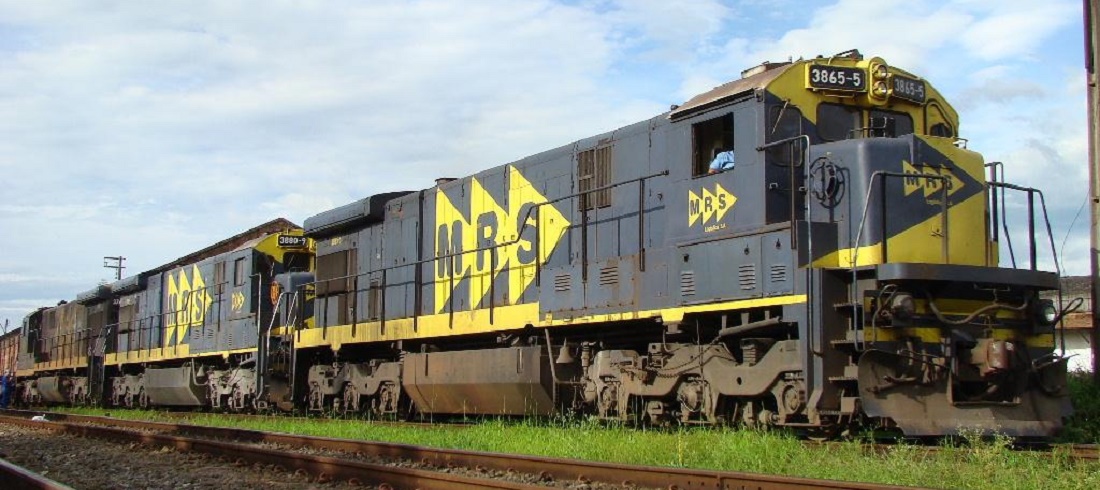
Brazilian Court grants permission to MRS to renew concession term
Jun, 02, 2022 Posted by Gabriel MalheirosWeek 202222
The Brazilian Federal Court of Accounts (TCU – Brazil) approved, on June 1st, the early contract extension of MRS Logística. With such permission, the railway concession that crosses São Paulo, Minas Gerais, and Rio de Janeiro shall be extended until 2056. Approximately 9.6 billion in investments are planned.
According to the company’s president Guilherme Segalla de Mello, MRS will sign the final contract within 30 to 45 days.
The court justices unanimously authorized the early extension. Now, the process goes back to the National Agency of Land Transport (ANTT), which will have to incorporate some determinations made by the TCU – none of them are considered critical or unexpected by the company.
The resources will be distributed across 51 municipalities and used in 280 improvement projects. MRS has already initiated a few interventions in the Santos regions and Vale do Paraíba, both in the state of São Paulo. “We took the risk in the second half of last year and began the activities between December and January of this year,” he explained.
The works underway in the Santos region are crucial not only for MRS but also for Rumo and VLI, as the capacity flow of the stretch that links the rail networks of the three operators and Santo’s internal port railway will increase. This expansion will cost roughly R$ 1 billion to complete. By 2056, the current capacity is expected to quadruple from 51 million tonnes to 109 million tonnes.
Another significant intervention will be the separation of MRS freight railways and CPTM passengers, which are currently shared. The Greater São Paulo project will require around R$ 2.2 billion in funding.
According to Mello, construction will take eight to ten years. “It is a tremendously complex task that will be completed literally while trains are running. We have daily interactions with CPTM to discuss the installation strategy. It will be a critical intervention for both MRS and CPTM, as we currently inhibit each other’s growth,” he said.
A total of 90 kilometers of railway lines will be built in two sections: a northwest-bound line between Jundiaí and the Barra Funda station in São Paulo and a southeast-bound track between the Brás station and Rio Grande da Serra.
There will be four lines in total: one for goods to MRS, two for CPTM, and a fourth for the Intercity Train (TIC), a passenger transport project of the government of So Paulo that will connect the capital to Campinas. “For each capability, we will extract the most out of the system,” he said.
The renewal of the MRS concession contract is key to the group’s diversification plan, which is overseen by CSN, Vale, Gerdau, and Usiminas. “We plan to expand the portfolio of cargo we transport. We have a typical ore, coke, and coal operation that has been in operation since 1996. These volumes are expected to stabilize, according to the estimate. As a result, general cargo, high-value-added items, steel, and agricultural products should take precedence,” he argues.
MRS plans to double general cargo volumes. In the container segment, the idea is to multiply the capacity by seven. For Mello, the potential for capturing new cargo is enormous. “The industries include everything from textiles to electronics, beverages, and perishables,” he explains. The volume of general cargo transported in 2021 was 62.8 million tonnes, with the ore operation accounting for 107.2 million tonnes.
The group, which had net revenue of R$ 4.4 billion in 2021 and has low leverage of 1.1 times, plans to finance new investments mainly through the capital market, with funding in Brazil and abroad, says Mello.
Launched in 2015 by former president Dilma Rousseff, the early renewal program of railroad concessions took a long time to take off. The first new contract, Malha Paulista (from Rumo), was only signed in 2020. Then came the extensions of two major railroads controlled by Vale: Vitória-Minas and Estrada de Ferro-Carajás.
The only thing left to do is move on with the Ferrovia Centro-Atlântica (FCA) from VLI, one of the four major rail networks on the list of anticipated renovations. The extension proposal has already been submitted to a public hearing, but there is still enormous controversy over the compensation that will be required.
The Federation of Industries of Espírito Santo (Findes), for example, defends more investments in Serra do Tigre (MG) to expand the cargo capacity that can reach the state. In an audience with technicians and Findes, the Minister of Infrastructure, Marcelo Sampaio, signaled yesterday that he would reopen the public hearing to find a consensus.
Source: Valor Econômico
To read the full original article, please go to:
https://valor.globo.com/empresas/noticia/2022/06/02/mrs-tem-aval-do-tcu-para-renovar-concessao.ghtml
-
Ports and Terminals
Aug, 04, 2022
0
Fertilizer imports gain momentum in Brazil’s ‘Northern Arc’
-
Other Cargo
Jun, 18, 2021
0
CEPEA: Dairy imports grew 14.5% in one month
-
Trade Regulations
Dec, 13, 2021
0
China’s new import rules worry food and beverage manufacturers
-
Grains
Mar, 01, 2024
0
Pará state aims to become top hub for Brazil’s agricultural exports


